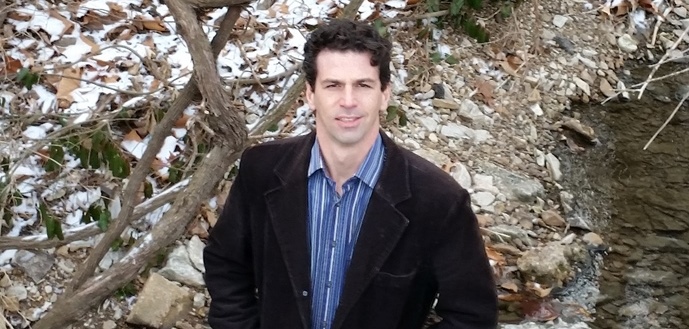An electrical engineer by trade, David Wechsler wants to create some connections for his new company.
He’s looking to connect with gardeners, backyard farmers, big agricultural interests, really anybody who likes to grow plants, in an effort to help grow his company, Electric Fertilizer.
Wechsler’s St. Louis-based startup aims to provide growers around the world with an alternative approach to improving crop growth and increasing yield – by using electricity.
Click here and scroll to hear David on KMOX Radio’s Charlie Brennan Show
Electric Fertilizer’s roots began to sprout five years ago, when, says Wechsler, “my wife and I were preparing to grow some food, basically broccoli and cauliflower, in our basement. We have big “grow lights” down there. It was about that time I had come across some really old articles about scientific experiments from the early 18th and 19th centuries, including some things that were being done with electroculture. I said, ‘what’s that?’”
Electroculture is, essentially, the practice of using electricity in agriculture or horticulture in order to stimulate plant growth, and Wechsler says he saw its benefits first hand, right in his own basement.
“I set up some simple experiments,” he says. Alongside the broccoli he was already growing he planted another set of seeds of the green leafy vegetable, then inserted into the soil beneath them a cell phone charger with one end removed, and the other end plugged into a standard outlet.
“After about six weeks, he says, “the results were astounding. I was calling everyone I knew saying, ‘hey check this out, it’s amazing.’ Basically the experimental group was towering over the control group. The leaf mass was three to four times larger and the color was five to 10 shades of green darker than the other plants. It just blew my mind.”
So much so that Wechsler dived into further research and ultimately, wrote a book on the subject, titled, “Electro-Horticulture: The Secret to Faster Growth, Larger Yields, and More… Using Electricity!”
That led Wechsler to the formation of Electric Fertilizer. “I wanted to create a company because not everyone is going to want to whip out a pair of wire cutters and cobble together something. I want to make it easy for people to do their own experiments and make more money gardening or improve their yield or do whatever they need to do.”
Wechsler says he wants to first educate people about the science, then develop a line of products that will make it easier for everyone from home gardeners to commercial farmers to take advantage of it. Pre-assembled or do-it-yourself kits to safely inject electricity into the soil are among the options for consumers. “It’s my goal to get a lot of people experimenting on lots of different plants, then create a community where we all share our results, making things better for everyone involved.” Toward that end, Wechsler says he is working on a line of products and currently is in the prototyping stage.
Wechsler says the electroculture experiments from 200 years ago were fruitful, producing wheat, turnips and other crops that had grown twice their normal rate, but those experiments have since been refined. One such trial had scientists putting a plate of copper and a plate of zinc on opposite sides of a garden while being connected underground by a wire that was charged as the soil grew moist.
“What I am working on is going beyond having those big hunks of metal in the ground, to using batteries encased in protective boxes, solar cells, wind power, all sorts of different technologies for putting power into the ground.”
As for concerns over health and safety, Wechsler says, “the risks of anyone getting hurt from these types of systems, especially the ones using lower voltages, is pretty much negligible. The amount of power we’re talking about is basically that of a common wristwatch.”
“This technology is completely natural, akin to the way the electric fields from passing thunderstorms tend to make plants appear greener and more lush. I’m a person who really cares about the environment, and that’s part of the appeal of this. It’s effectively emulating nature’s own methods for improving growth.”
As is the case with every startup, Wechsler’s seeking funding, with a kickstarter campaign among the options he’s exploring to raise capital. He’ll include in his pitch the benefits he sees for electroculture: boosting crop yields from 30 to 300 percent, reducing time to harvest, shielding crops from early frosts, and improving plant resiliency against drought, disease and pests.
He’s hoping growers, and investors, get charged up about his company.




Recent Comments